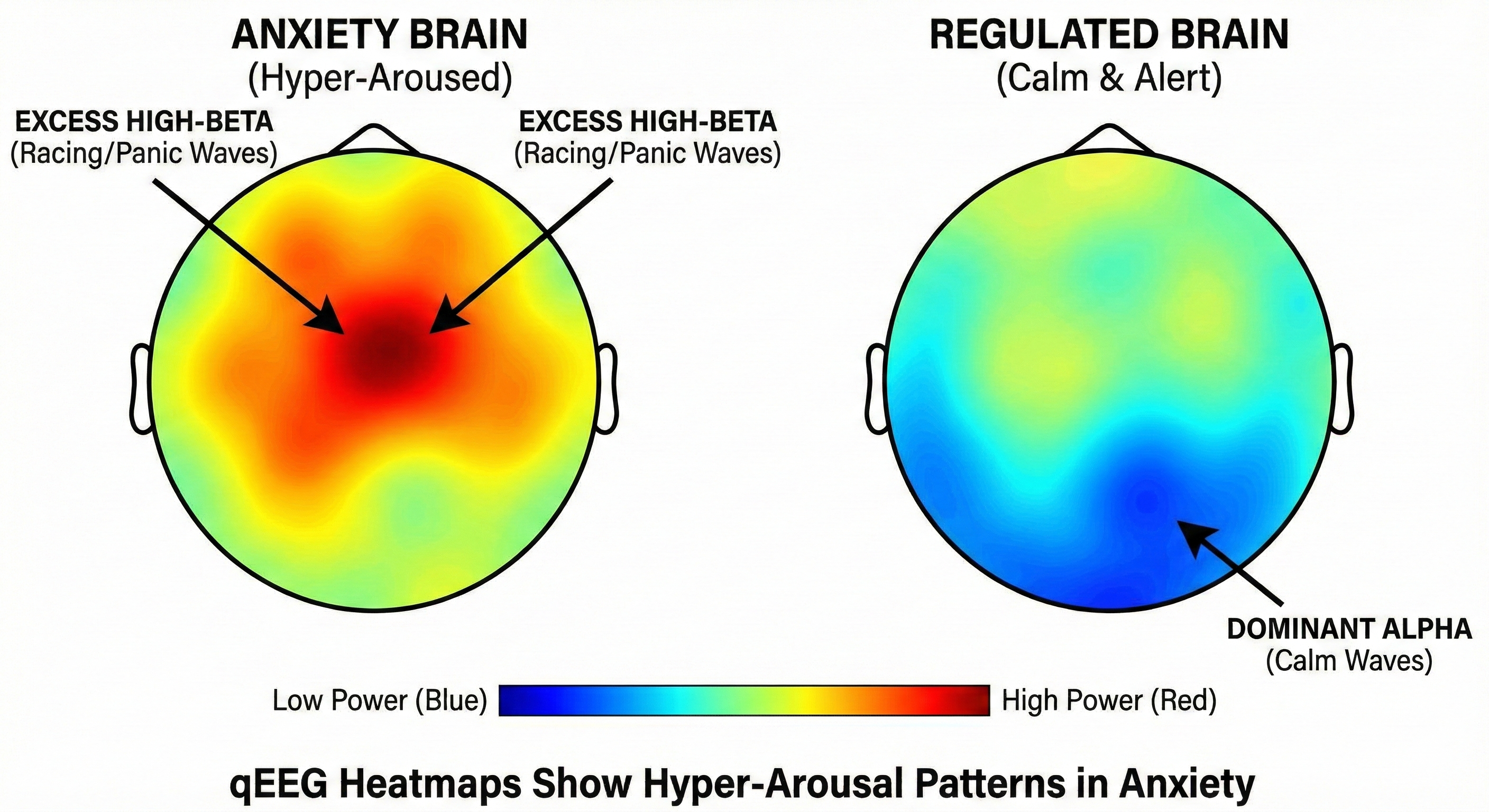Compassionate Anxiety Therapy in Ogden & SLC
Anxiety can feel like a constant weight on your chest or a race your mind can’t stop running. At Healing Tree, we provide a safe, supportive space to explore the roots of your worry and develop the tools you need to reclaim your life.
Talk With a Therapist
What Does Your Anxiety Feel Like?
Anxiety presents differently for everyone. We provide targeted protocols for the major neurological subtypes.
Chronic Worry (GAD)
Addressing the persistent "what-if" thinking that prevents you from feeling present or at peace.
Panic & Phobia
Training the brain to stop overreacting to internal and external stressors with intense physical fear.
Social Anxiety
Reducing the hyper-vigilance and "performance pressure" felt during social interactions.
Over-Arousal (Insomnia)
Helping the brain "down-shift" at night so you can actually fall asleep and stay asleep.
Our Clinical Counseling Approach
Evidence-based talk therapy is the foundation of everything we do.
Cognitive Behavioral Therapy (CBT)
We help you identify the "thought traps" and distorted patterns that fuel your anxiety, giving you practical strategies to reframe your perspective and reduce daily stress.
Mindfulness & Regulation
Learn to stay grounded in the present moment. We teach somatic tools to lower the "emotional temperature" of your body when panic or worry begins to rise.
Acceptance & Commitment (ACT)
Instead of fighting your thoughts, learn how to move toward what matters most to you, even when anxiety is present.
Narrative & Relational Work
Exploring how your past experiences and current relationships impact your sense of safety and security in the world.
The Healing Tree Difference: A Two-Pathway Approach
Have you ever noticed that you can "know" your thoughts are irrational, but your body still feels like it's in danger? This happens because anxiety exists in two places: your **Mind** (the thoughts you process in talk therapy) and your **Brain** (the biological survival signals).
1. Top-Down (Talk Therapy)
Addressing your thoughts, processing your story, and building new behaviors. This is the primary work of counseling.
2. Bottom-Up (Neurofeedback) Optional Booster
For clients who feel "stuck," we offer qEEG-informed Neurofeedback. This addresses the biological over-arousal (such as Alpha Asymmetry or High-Beta signatures) that can sometimes prevent talk therapy from being fully effective.

Combining the mind and the biology for comprehensive healing.

Objectifying Your Progress
We believe therapy shouldn't be a guessing game. By using qEEG mapping based on the 10-20 international system, we can see if your anxiety has a measurable neurological signature—like Alpha power imbalances in the right frontal lobe.
This data helps our therapists tailor their counseling approach to your specific needs, ensuring that we are addressing the right areas of concern from the very first session.
Anxiety Treatment FAQ
Begin Your Journey to Calm
Available in-person in Ogden and Holladay, or via secure Telehealth throughout Utah.
Schedule Your First Session